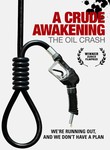This is a listing of green-themed films that came out in the last few years (between 2006-2011). I have not seen all of these films, so I can’t say that all of them are worth seeing, but many of them have won awards or been critically acclaimed. Click on the links below (or go to IMDB.com) to see previews/trailers, reviews, and descriptions of each film. Scroll to the bottom of the post to see a list of some green film festivals; those sites provide videos and information on even more films.
UPDATE: Also see our newer posts on Green Films of 2015 and Green Films: 2012-2014.
 Films on energy, fuel, and/or climate change:
Films on energy, fuel, and/or climate change:
- The Last Mountain (2011)
- You’ve Been Trumped (2011)*
- Revenge of the Electric Car (2011)*
- The Island President (2011)
- GASLAND (2010)
- Carbon Nation (2010)*
- Climate of Change (2010)*
- Powerful: Energy for Everyone (2010)*
- Crude (2009)
- Climate Refugees (2009)
- Fuel (2008)
- The Age of Stupid (2008)

- The 11th Hour (2007)
- A Crude Awakening: The Oil Crash (2007)
- An Inconvenient Truth (2006)
Films on food and/or farming:
- Symphony of the Soil (coming out in 2012)
- Urban Roots (2011)*
- Growing Cities (2011)*
- American Meat (2010)*
- The Greenhorns (2010)*
- Queen of the Sun: What are the bees telling us? (2010)*
- Vanishing of the Bees (2009)

- Big River (2009)
- Fresh (2009)*
- Dirt! The Movie (2009)*
- Homegrown Revolution (2009)*
- We Are What We Eat (2009)
- Food, Inc. (2008)
- Food Fight (2008)
- King Corn (2007)*
- Earthlings (2007)
- The Price of Sugar (2007)
- Fast Food Nation (2006)
- The Future of Food (2004)
- For a list of other food-related films, see this list from Serious Eats.
Films on other topics (e.g., health/toxins/pollution, water, localization, dolphins, etc.):
- The Human Experiment (coming out in 2012)
- Mother: Caring for 7 Billion (2011)
- The Economics of Happiness (2011)*
- Waking the Green Tiger (2011)
- Consumed: Inside the belly of the best (2011)
- Green Fire: Aldo Leopold and Land Ethic for Our Time (2011)
- Bag It: Is your life too plastic? (2010)*
- Living Downstream (2010)
- WASTE LAND (2010)*
- 180 Degrees South (2010)*
- The Cove (2009)
- Forever Wild: Celebrating America’s Wilderness (2009)
- Flow: For Love of Water (2008)
- Scarred Lands & Wounded Lives: The Environmental Footprint of War (2008)
- WALL-E (2008)*
- What Would Jesus Buy? (2007)*
If there are other relevant films that you’ve heard of or seen and would recommend to others, please add those in the Comments section below.
* Films that are marked with an asterisk are films that have a more positive or funny bent than many of the others. There are only so many bleak films about reality that people can watch in a row without getting depressed or angry and feeling helpless to make a difference. I find that it’s best to take in some positive stories, solutions, and humor now and then, to keep myself sane and motivated…
UPDATE: Also see our newer posts on Green Films of 2015 and Green Films: 2012-2014.
Green Film Festivals
These are a few of the annual film fests that I’m aware of. Please let everyone know about others by contributing a Comment! Many of the festivals’ websites feature video clips or entire films (short and full-length films), and they list many additional, new, independent films, beyond what I’ve listed above.
- Environmental Film Festival (Washington, DC)
- San Francisco Green Film Festival (San Francisco, CA)
- One Earth Film Festival (Chicago, IL)
- Wild and Scenic Film Festival (Nevada City, CA)
- Mountainfilm Festival (Telluride, CO)
- Planet in Focus environmental film festival (Toronto, Canada)
- UK Green Film Festival (5 cities in the UK, including London)
- Possible Futures Film Contest (online short films)









 In these times of unnatural disasters—such as BP’s oil-hemorrhaging drill “spill,” as well as extreme weather events caused by increasing climate volatility—more people are seeking ways to reduce their carbon footprint: i.e., their consumption of fossil fuels (petroleum, coal, and natural gas). We are all essentially junkies—or oiloholics—who don’t know how to live without these substances.
In these times of unnatural disasters—such as BP’s oil-hemorrhaging drill “spill,” as well as extreme weather events caused by increasing climate volatility—more people are seeking ways to reduce their carbon footprint: i.e., their consumption of fossil fuels (petroleum, coal, and natural gas). We are all essentially junkies—or oiloholics—who don’t know how to live without these substances. The following are key online resources for information on federal, state, and local environmental tax credits, rebates, and other financial incentives. Most of the incentives that are available are for installing energy-efficient equipment or renewable energy (e.g., solar) technologies.
The following are key online resources for information on federal, state, and local environmental tax credits, rebates, and other financial incentives. Most of the incentives that are available are for installing energy-efficient equipment or renewable energy (e.g., solar) technologies.